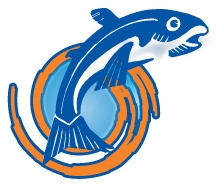Cracking the FSWE Study Guide
I began with the JK section of the study guide. The actual fswe exam will have 90 questions to be answered in 60 minutes; roughly half of which will be JK and the remaining half cone-specific. The cone-specific questions will be in their own sections: PD, Pol, Econ, Cons, or Mgmt; the end of the GK section will instruct you to turn to page X and answer questions Y through Z depending on your chosen Career Path (cone).
The sample JK test contained 24 general questions and 20 "career track" questions (the Rationales section explains which area of knowledge or track to which the questions pertains).
Since the ratio of time to questions ratio of the actual exam is 2:3, I set a time limit of 30 minutes to correlate with the 44 sample questions. I finished in approxmately 20 minutes, and immediately set about scoring this section. That was mistake number one. One career question prompted me to think about changing an answer in the JK section, but I did not, and subsequently missed. I also skipped one and did not come back. Some were shot-in-the-dark misses, but several were foolish mistakes (either not trusting my gut instinct or not reading carefully). Out of 44, I only got 29 correct (65.9%). Had I been more deliberate, I would not have missed the six that I did, and could have had a score of 35 (79.4%). My weaknesses on this test were "treaties & policy"and "human resources management". I need to find a good book on management to read.
----------------------------------------------
A few days later, I sat down to plow through the EE section of the exam. The actual exam will have 90 English Expression questions, and will last for 70 minutes, 10 minutes longer than the JK.The study guide has 50 sample questions, so for the practice run, I allocated 39 minutes (since ½ of 90 questions + 10%=49.5/50 sample questions, then ½ of 70 minutes + 10% =38.5/39 practice time). On this section I faired much better, only missing 3 of 50 (94%). One incorrect answer concerned the possessive form of "it"; the other two were "too wordy". I am very pleased with this result, and think that I am adequately prepared for this portion of the examination.
----------------------------------------------
The third section of the fswe is the Biographical Inventory. Although the instructions clearly states that there are no "right and wrong answers" on an individual basis, it does state that the questions "measure a number of dimensions identified from job analyses as highly relevant for successful Foreign Service Officer performance" (FSWE Study Guide 2005, pg 31.) In other words, all "correct answers" are filtered by relevance to FSWE job requirements. The temptation to "game" the exam here is strong, but one must keep in mind that it cannot be certain which questions are relevant in which ways, plus the fact that any erroneous (or false) answers might raise issues at the Final Suitability Review, it is best just to be straightforward with your answers.BTW, I got 100% :~)
----------------------------------------------
The essay section is an entirely different animal, and an upcoming post will be dedicated to it entirely.
